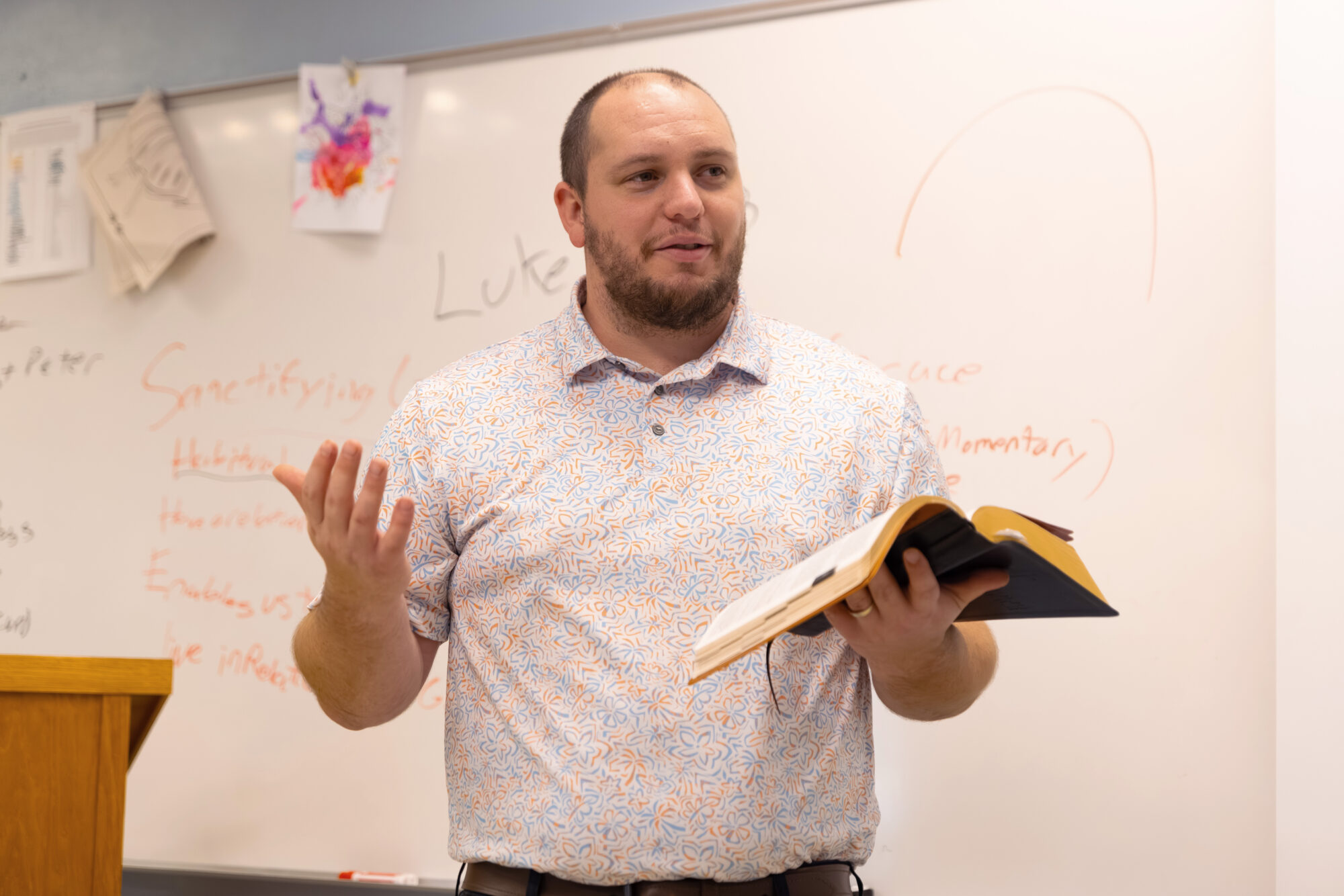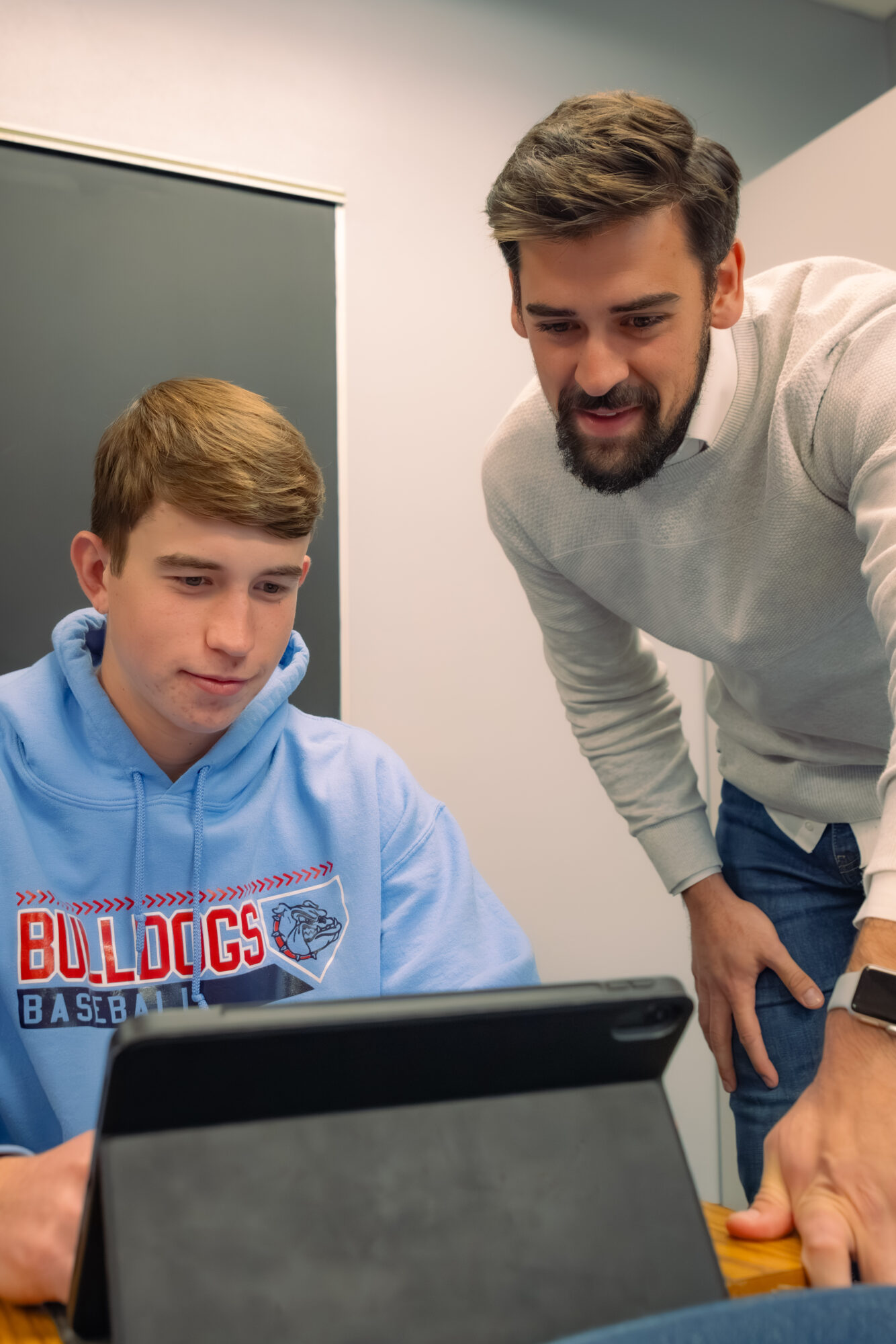St. Anthony High School launched an innovative theology curriculum this fall designed to transform how students learn about and engage with their faith. The new Theology curriculum introduces elective options for upper-class students.
“Our intent for the program is to get students excited about developing a relationship with Jesus and to realize that to be Catholic is to be fully alive,” explains teacher Ben Zuber.
“Our vision for theology isn’t just a checkbox to complete—it’s about helping students genuinely engage and invest in their faith in order to create a deeper relationship with God. Ultimately, we want students to leave high school with a foundation of faith and understanding that the traditional Catholic faith is reasonable, and they will always have a ‘sense of home’ with Jesus and the church,” adds teacher Sean Hussey.
The curriculum includes strong foundational courses for underclassmen while introducing specialized electives for juniors and seniors. All students begin with core courses or “pre-requisites,” including Sacred Scripture and Introduction to Catholicism. These essential building blocks give students the theological framework they need for deeper exploration.

The new elective program is designed with the students’ interests and spiritual journey in mind. Upperclassmen can select courses that align with their individual curiosities. Current semester-long offerings include Catholic Apologetics, Moral Apologetics, New Testament Scriptures,Discovering the Saints, and Modern Media through the Catholic Lens. There is also a year-long course, Discipleship, that is discipleship-intensive. This small-group class is held off-site in a similar style to the Effingham CEO program. It includes Catholic habit-building activities such as early morning Mass, adoration, daily prayer, and scripture reading.
“We’re approaching these classes like college-level courses and hoping to inspire students in ways that we have once been inspired ourselves,” notes Mr. Hussey, who teaches the apologetics tracks and discipleship elective. Mr Zuber adds, “we also want to offer students a variety of ways to find Jesus and experience Him. By giving the students the choice to choose their own path to explore Jesus, they are active participants in their faith journey and become more invested in the material and the discussions.”

One of the more interesting concepts of the new elective program is the emphasis on Catholic apologetics, or discussions. “In today’s world, our students need to understand not just what they believe, but why they believe it,” shares Mr. Hussey. “We’re giving them the tools and courage to engage in meaningful conversations about their faith while also respecting different perspectives.”
The new theology curriculum also incorporates contemporary issues through courses like “Modern Media Through the Catholic Lens,” where students analyze current events and popular culture from a Catholic perspective. This approach helps students encounter modern day events and commentary and evaluate their position using their Catholic Faith foundation.
For next year and beyond, the theology department is committed to adapting the program based on student interest, participation and feedback. They expect the program to continue to expand in order to meet the ever-changing needs of the students.


